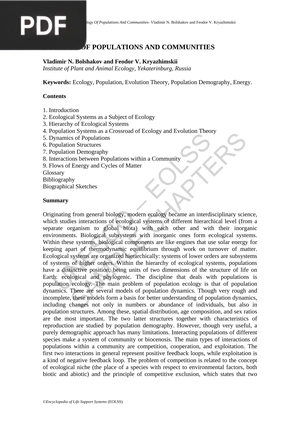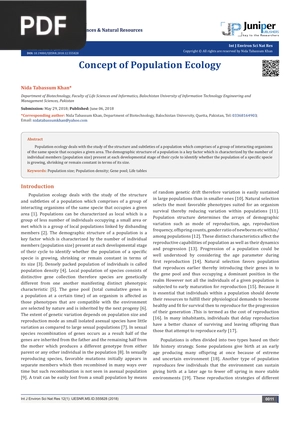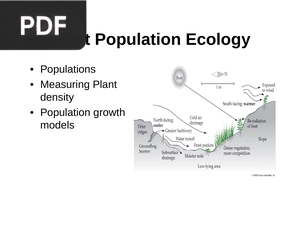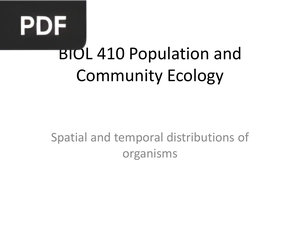Topic: Population Ecology (Article)
Author: Anjana Singh
*Wait a few seconds for the document to load, the time may vary depending on your internet connection. If you prefer, you can download the file by clicking on the link below.
Information
Description: Topic: Population Ecology (Article) by Anjana Singh.
Pages: 14
Megabytes: 0.25 MB
This may interest you
Ecology of populations and communities (Article)
Extension: PDF | 10 pages
Ecology of populations and communities (Article) por Vladimir N. Bolshakov and Feodor V. Kryazhimskii provides a comprehensive overview of population ecology, its relationship to other ecological disciplines, and evolution theory. A valuable resource for understanding fundamental concepts in ecology and how populations interact within ecosystems.
Concept of Population Ecology (Article)
Extension: PDF | 3 pages
Concept of Population Ecology (Article) por Nida Tabassum Khan offers a concise overview of population ecology, covering key concepts like population structure, density, and gene pool dynamics. This paper provides a foundational understanding for anyone delving into the factors influencing population growth and stability.
Plant Population Ecology (Presentation)
Extension: PDF | 19 pages
Plant Population Ecology (Presentation) por Western Oregon University is a concise overview of key concepts in plant population ecology, including population structure, density, and growth models. It provides a foundational understanding of plant population dynamics.
BIOL 410 Population and Community Ecology (Presentation)
Extension: PDF | 38 pages
BIOL 410 Population and Community Ecology (Presentation) por University of Northern British Columbia introduces fundamental concepts, spatial/temporal distributions and models. Explore ecological scales, population dynamics, and community interactions, a valuable resource for understanding the core principles.










































